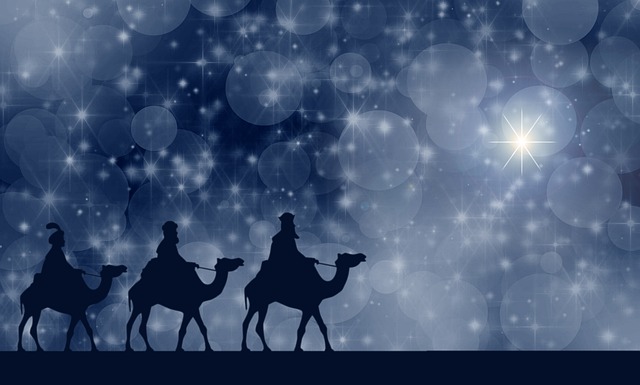Let’s talk about Wise Men.
Here is the account in Matthew’s gospel:
Matthew 2:1-2
2 After Jesus was born in Bethlehem in Judea, during the time of King Herod, Magi from the east came to Jerusalem 2 and asked, “Where is the one who has been born king of the Jews? We saw his star when it rose and have come to worship him.”
Why do a lot of translations call them Magi? And have you ever noticed that “Magi” is the root word for “Magician?” If these men were magicians of some sort (and they most likely would fall into the category of astrologer or diviner) consider what the bible has to say about them:
Leviticus 19:31
“Do not turn to mediums or necromancers; do not seek them out, and so make yourselves unclean by them: I am the Lord your God.
Leviticus 20:27
“A man or a woman who is a medium or a necromancer shall surely be put to death. They shall be stoned with stones; their blood shall be upon them.”
Ouch. So would it have been a good thing to have been visited by magi?
Also, you should probably get out of your head the idea that there were only three of them. The bible doesn’t give a number at all. Tradition says there were three men because that is the number of gifts mentioned. But it doesn’t make any sense to only have three there. This is because of what I like to call the Star Trek effect. In the 1960s show Star Trek each episode had the captain, first officer, science officer, etc. go down to an unexplored planet to encounter some sort of danger. But the only reason this kind of thing was in the plot was that the actors who played those characters had to get a lot of screen time. It really doesn’t make any sense for the most important people in a ship to be the ones to put themselves in danger. So there was no way that three important men from the East would travel alone all that way.
Speaking of gifts, here is the passage that mentions what they gave Jesus:
Matthew 2:9-12
9 After they had heard the king, they went on their way, and the star they had seen when it rose went ahead of them until it stopped over the place where the child was. 10 When they saw the star, they were overjoyed. 11 On coming to the house, they saw the child with his mother Mary, and they bowed down and worshiped him. Then they opened their treasures and presented him with gifts of gold, frankincense and myrrh. 12 And having been warned in a dream not to go back to Herod, they returned to their country by another route.
So they gave Jesus gold, frankincense, and myrrh. The first gift is easy to understand. Gold was and remains very valuable. You can kind of understand the next gift too. Frankincense is an expensive fragrance made from trees in India and Arabia. But myrrh is a stretch, especially since one of its uses was embalming oil.
So why give these gifts? What did the magi get out of this trip? The reasons make a lot more sense if we look at the symbolism. Gold symbolized royalty. By giving this gift the magi were asserting that Jesus was royal. Frankincense was a symbol of holiness. It was a major component for the priests:
Exodus 30:34-38
34 Then the Lord said to Moses, “Take fragrant spices—gum resin, onycha and galbanum—and pure frankincense, all in equal amounts, 35 and make a fragrant blend of incense, the work of a perfumer. It is to be salted and pure and sacred. 36 Grind some of it to powder and place it in front of the ark of the covenant law in the tent of meeting, where I will meet with you. It shall be most holy to you. 37 Do not make any incense with this formula for yourselves; consider it holy to the Lord. 38 Whoever makes incense like it to enjoy its fragrance must be cut off from their people.”
By giving this gift the magi were asserting that Jesus was holy. And myrrh was a symbol of humanity. It was an anointing oil as well as an embalming fluid.
These gifts were a way for the Magi to express their belief in Jesus’ royalty, divinity, and humanity. This was quite simply an act of praise. In fact you can argue it is the greatest act of praise in the bible. These men gave up months (years?) of their lives. They gave up expensive gifts and time with their family and friends. They put themselves in danger making the journey. And they expected nothing more out of the trip than to say “I was there. I saw the Christ child. I dropped everything and worshipped Jesus.” They didn’t give Jesus what he needed. Rather, they scarified things they otherwise would have enjoyed.
What an amazing worship lesson for us.
God Bless

